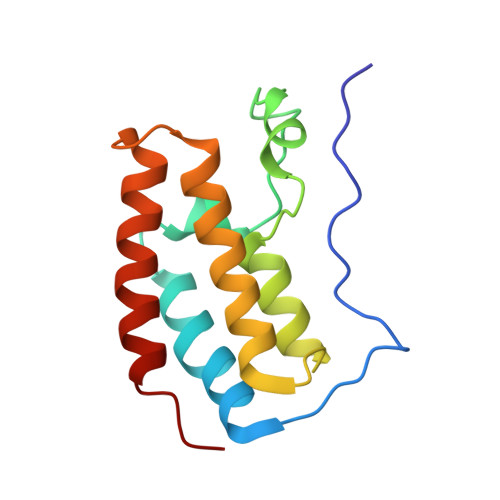Development of BRD4 inhibitors as anti-inflammatory agents and antidotes for arsenicals.
Yatchang, M.F., Mathew, B., Srivastava, R.K., Khan, J., Muzaffar, S., Zhang, S., Wu, M., Zhai, L., Ruiz, P., Agarwal, A., Bostwick, J.R., Suto, M.J., Athar, M., Augelli-Szafran, C.E.(2022) Bioorg Med Chem Lett 64: 128696-128696
- PubMed: 35318165
- DOI: https://doi.org/10.1016/j.bmcl.2022.128696
- Primary Citation of Related Structures:
7T3F - PubMed Abstract:
Arsenicals belong to the class of chemical warfare agents known as vesicants, which are highly reactive, toxic and cause robust inflammatory response. Cutaneous exposure to arsenicals causes a wide range of systemic organ damage, beginning with cutaneous injuries, and later manifest multi-organ damage and death. Thus, the development of suitable antidotes that can effectively block injury following exposure to these agents is of great importance. Bromodomain 4 (BRD4), a member of the bromodomain and extra terminal domain (BET) family, plays crucial role in regulating transcription of inflammatory, proliferation and cell cycle genes. In this context, the development of potent small molecule inhibitors of BRD4 could serve as potential antidotes for arsenicals. Herein, we describe the synthesis and biological evaluation of a series of compounds.
Organizational Affiliation:
Scientific Platforms, Southern Research, 2000 Ninth Avenue South, Birmingham, AL 35205, USA.




















